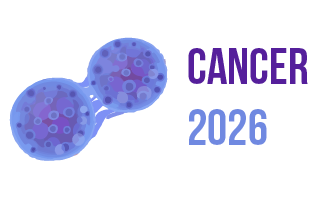4th International Conference on
Innovations and Advances in Cancer Research and Treatment
October 08-09, 2026 | Tokyo, Japan

Address: 68 Horinouchi, Narita, Chiba 286-0107, Japan
Cancer 2026

National Cancer Institute, USA
Abstract:
Introduction
Pattern recognition receptors (PRRs), such as Toll-like receptor 4 (TLR4),
detect pathogen-associated molecular patterns (PAMPs) and help maintain
epithelial homeostasis. While their roles in infection and inflammation are
well established, their function in skin carcinogenesis and host-microbiota
interactions remains less understood. Analysis of The Cancer Genome Atlas
(TCGA) revealed recurrent mutations in TLR4 in skin cancers, suggesting a
potential tumor-suppressive role.
Methods
We used a mouse model with keratinocyte-specific IKKα deletion (Ikka.f/+K5.Cre),
with or without TLR4 deficiency. Skin microbial composition was profiled, and
3D skin organoids were generated from murine keratinocytes. These organoids
were exposed to tumor-associated bacterial communities to assess DNA damage
(γH2AX), IL-1β expression, and lipid metabolism. Comparisons were made with
Il4R-/- organoids. In vivo studies included antibiotic treatment and IL-4R
signaling ablation.
Results
Ikka.f/+K5.Cre mice showed low tumor incidence, but concurrent TLR4 loss
significantly increased squamous cell carcinoma (SCC) formation, with tumors
showing loss of the wild-type Ikka allele. Microbiome profiling revealed
increased bacterial burden and Firmicutes enrichment in IkkaΔKC/+; Tlr4-/- mice.
Organoids exposed to these bacteria showed elevated DNA damage, IL-1β, and
altered lipid metabolism—responses absent in Il4R-/- organoids. Remarkably,
IkkaΔKC/+; Il4R-/- mice were tumor-resistant. Antibiotics also suppressed
tumorigenesis.
Conclusion
These findings identify a TLR4–microbiota–IL-4R axis promoting skin cancer in
IKKα-deficient epithelium. The 3D organoid model is a valuable platform to
study host-microbiota-immune interactions, and IL-4R signaling presents a
promising therapeutic target for cancer prevention.
Biography:
I am a postdoctoral fellow at the National Cancer Institute (NCI), NIH, with expertise in molecular immunology, cancer biology, and host-microbiota interactions. I earned my Ph.D. in immunology and have over five years of research experience exploring immune signaling pathways involved in cancer. My current work focuses on how innate immune receptors like TLR4 influence epithelial homeostasis and tumor development. I have published in peer-reviewed journals and received multiple awards recognizing my research contributions. I am passionate about translational science and aim to develop innovative immunotherapies. Outside the lab, I enjoy hiking, nature photography, and exploring new trails.
